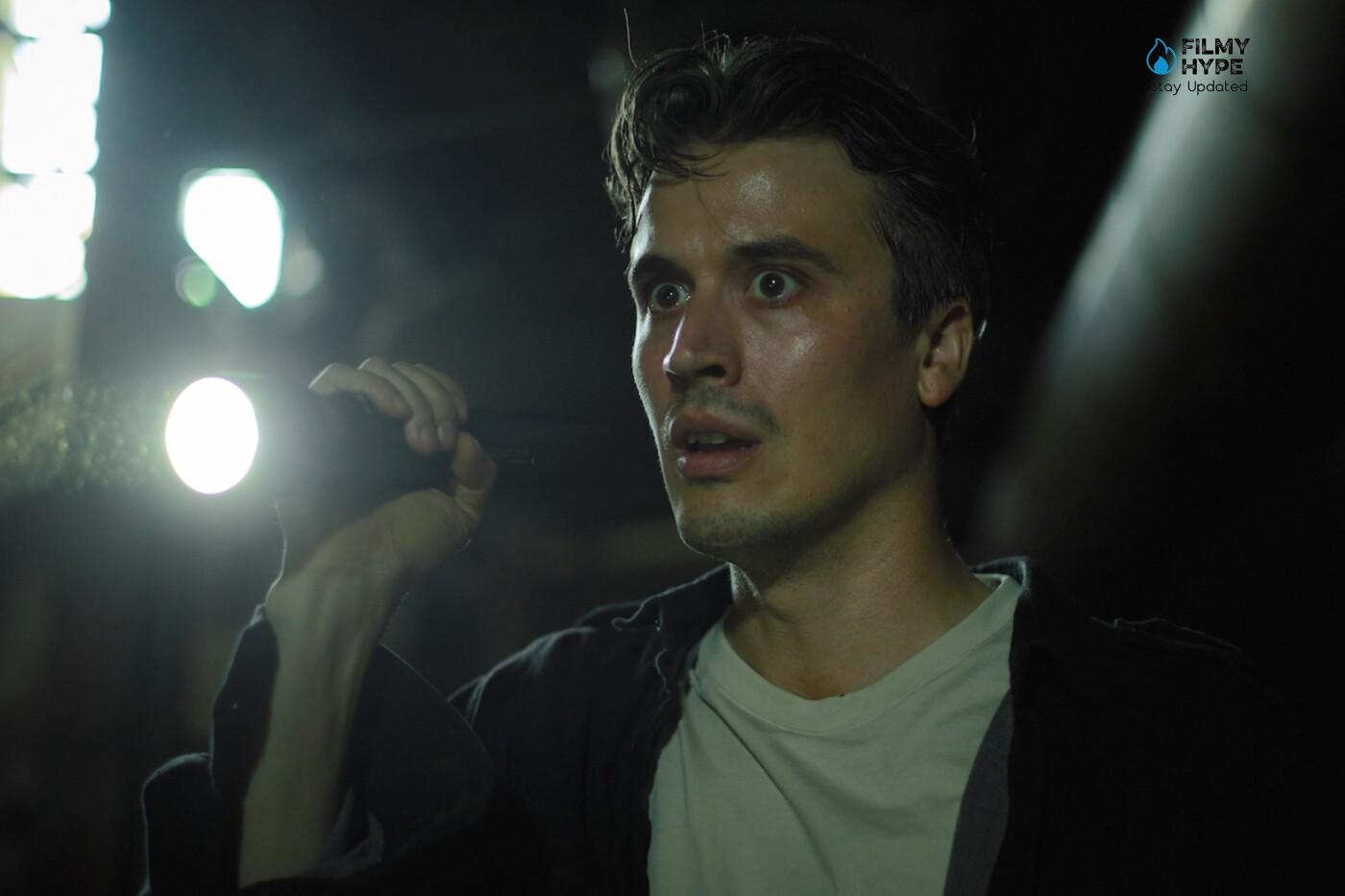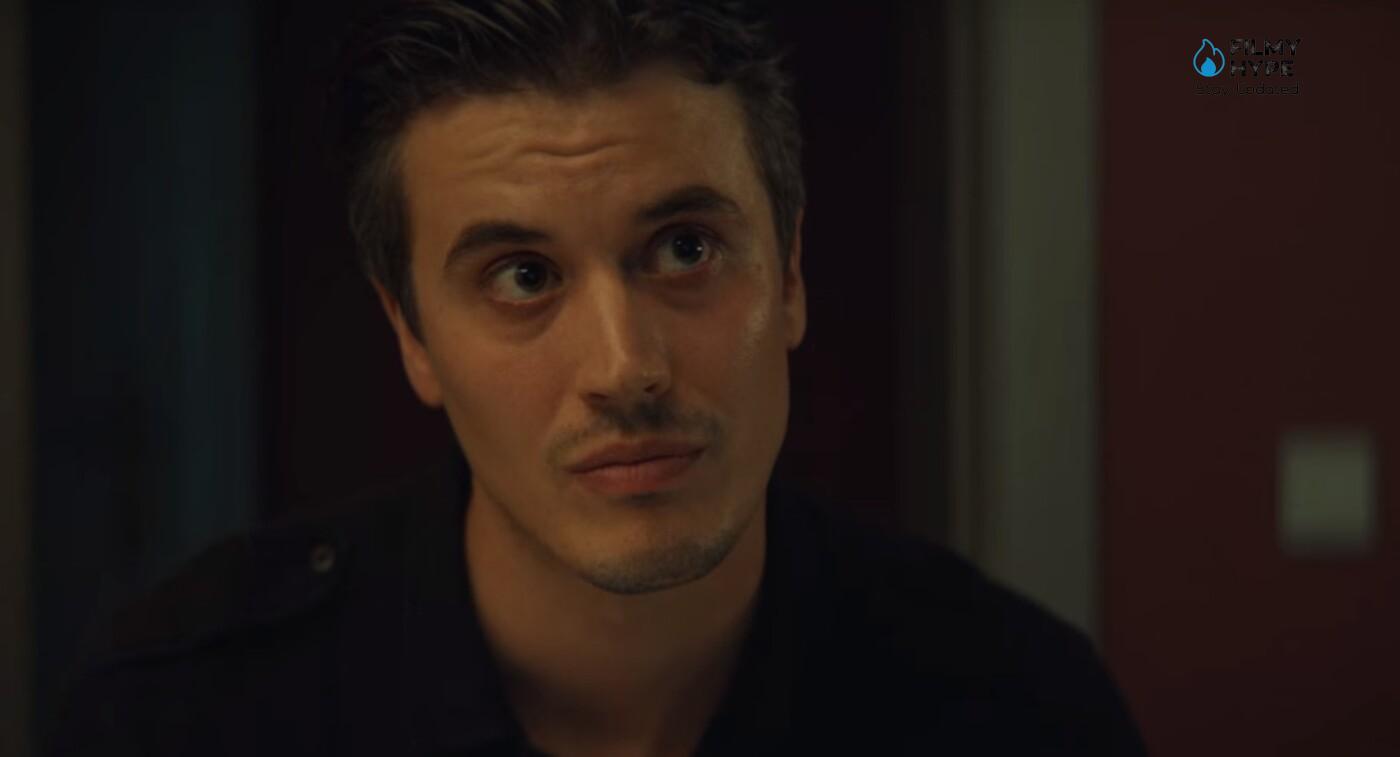Noise Ending Explained: What Happened To Timme? Does Mattt Follow in His Mother’s Footsteps?
Noise the film directed by Steffen Geypens and available for streaming on the Netflix platform stars Matthias, an influencer who has just moved with his wife Liv and their newborn son into the old family mansion. Precisely the house where the man, during his childhood, had lived alone with his father Pol – who resides in a nearby elderly facility – after his mother had committed suicide by drowning in the garden pond. As we have already seen in our Noise review, Matthias and Liv’s new life in the family home proves, right from the start, anything but easy; especially when the first begins to investigate a dark secret that, many years earlier, had involved the factory owned by his father.

The obsessive search for the truth, sleep deprivation and growing paranoia drag Matthias into an abyss of madness from which it will not be easy to emerge. But what is hidden inside the documents that man examines day and night? And what is the truth behind her mother’s suicide so many years ago? If you have finished watching the film, you will already know how to answer these questions; but the confusing and fragmentary plot that characterizes Geypens’ work will probably have left you with many doubts. In our explanation of the ending of Noise, we try to clarify the more nebulous aspects of the film.
Noise Netflix Film: Plot Summary
Matthias (Ward Kerremans) is a young influencer with a large following who decides to move – together with his wife Liv (Sallie Harmsen) and their newborn son – into the old family home where, in the past, he lived alone with his father Pol (Johan Leysen). We immediately discover that his mother Michelle had committed suicide in the pond of the mansion when Matias was only a newborn. Life in the new house, however, is not easy: Liv’s catering business struggles to take off due to the distrust of the country and Matthias immediately appears very frustrated, because of a son that the man does not seem to know how to manage and from the presence of his father, now suffering from dementia, who lives in a nearby nursing home. Only a few days after their move, however, a mystery from the past attracts Matthias’ attention: an accident that occurred many years earlier in what the factory was once run by his father and whose serious consequences were covered up. Determined to bring the truth to light, the man launches into an obsessive investigation that will put his relationship with his wife and his mental health at risk.
Noise is mainly set in an isolated estate in the countryside, where the protagonist spent his childhood. The house is surrounded by woods and is located near a creepy lake, quite far from other houses. Nearby is also the factory of Matias’s elderly father, which in the past has been the scene of dangerous accidents and a source of shame. These locations help create the perfect atmosphere for a suspenseful thriller. Even the interior of the house – albeit modern, so much so that the protagonist is an influencer – immediately brings us back to the climate of the great horror and thriller films of the 80s. The lake with its dark reflections is not limited to being a backdrop to the story, but becomes the protagonist of a fundamental junction, as we sense from the opening scene.
The initial sequences seem to lay the foundations for an intriguing and complete plot, even if not particularly original. A family with a newborn baby moves to the countryside to seek some calm: in Matias’s childhood home they are fascinated – and then obsessed – by nocturnal Noises and slowly become aware of potentially dangerous secrets. After the first twenty minutes, the film begins to develop in a confused way, sketching various subplots and bringing only a few to closure. The mysteries about the factory of Matias’ father and the increasingly incomprehensible actions of the protagonist add up to the distressing cry of the child. In general, a very fragmented plot is formed with various valid points, perhaps too many to be developed completely.
What Happened In The Past?
Concerned for Matthias’s mental health, Liv visits her father-in-law at the nursing home to clarify what is happening. Here the woman discovers documents revealing that Michelle, the mother of Matthias who died by suicide, had various mental health problems, including anxiety, insomnia, paranoia and postpartum depression; more importantly, some of these are described as hereditary. From this, we can therefore deduce that Matthias himself is also affected by it. We then return to the very first scene of the film – that of the mother’s suicide – this time, however, from Pol’s point of view. We see the man running after his wife, now completely immersed in the pond, and only manage to save little Matthias, who only now we discover to have been with her. We then hear Pol whisper “I should have saved you first“, and from this simple statement, we understand the feeling of inadequacy that Matthias feels towards his father.
Noise Ending Explained: What Happened To Timme?
The scene then returns to Matthias, intent on digging a hole in the same spot where he had seen the planks of the basement “breathe”: he is convinced that the bodies of the victims of the accident are underneath. Not even the breaking of a water pipe, which begins to flood everything, distracts him from his intent. Just at that moment, Liv comes back to her house trying in every way to get her husband out of that huge hole of water (which is so reminiscent of the garden pond) in which she is drowning. But he, pushing her away, tells her to stop hindering him, that he’s “saving them all” referring to floating bodies that probably only exist in her imagination. The father arrives to resolve the situation – although it is not clear why he is there – who, using his stick, saves Matthias from the water, exactly as he did when he was just a baby.

By recreating the same experience, we can guess that man, in this way, will finally be able to go beyond his childhood trauma. In the final scene of Noise, Liv is awakened by the crying baby, and, looking towards her husband’s side of the bed, we see medicine bottles on the nightstand. This detail suggests to the viewer that Matthias is now being treated for mental disorders that have caused him paranoia and hallucinations. When she gets up, Liv finds the man staring at the garden pond, approaches him and smiles.
Was There Really a Conspiracy?
The existence or otherwise of a conspiracy relating to what had been the consequences of the accident at the chemical factory is a detail that is not eviscerated. We certainly understand that most of the things, such as the discovery of a body in the former factory, were only the fruit of Matthias’s psychosis; how the initial words spoken by the father could easily be considered the ravings of a person with dementia. A definitive answer, however, does not exist, as it is not suggested to us by the film.
What Drives Matthias to Investigate?
Walking towards the retirement home where the elderly father resides, Matthias and Pol come across what remains of the Soubaylo chemical company of which the father, in the past, was a big shot. In front of the abandoned factory, Pol loses himself in a conversation, more to himself than to his son, as confused as it is mysterious: Some managed to escape that way, but the water came out far too fast. We saved some documents but…if you only knew how much money was at stake. They had been warned so many times, but they didn’t listen, and then when they did, I was able to clean everything up. What happened is more serious than you think; I think it’s about time everyone knew about it.
Initially just to please his followers, curious to know more about it, Matthias begins to investigate the accident that took place at Soubaylo and its consequences, kept hidden for so many years. But it doesn’t take much for the man to get entangled in this obsessive search that seems to become his only reason for living. While Matthias finds articles and documents about the catastrophe that took place in the chemical factory and becomes convinced that many more people have died than the official numbers, the man begins to lose his mind, developing paranoia and increasingly frequent hallucinations. For when, during the night, he imagines the floorboards of his basement rising and falling in a rhythmic rhythm, almost as if they were breathing. Secrets lie underground, clearly, but are they real or are they just a figment of Matthias’s mind? Despite all this, the man continues to investigate, driven by a deep desire to redeem himself in the eyes of his father and to prove his worth.






